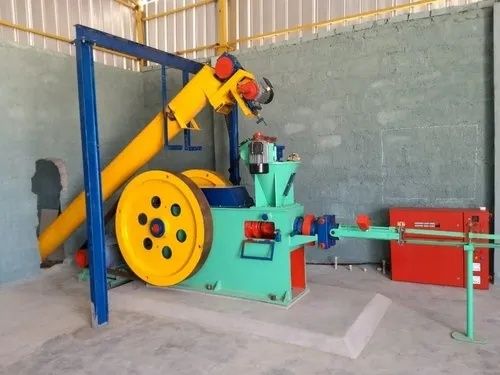As businesses grow more complex and global, HR tools provide the structure and digital framework needed to maintain efficiency. Instead of relying on manual methods, companies now use advanced platforms to manage employee information, track engagement, and ensure legal compliance. These solutions exist because organizations require smarter ways to support both employees and managers in day-to-day operations.
Importance
HR tools are important because they affect how effectively a workforce operates. They:
-
Support efficiency by automating repetitive HR tasks like attendance tracking or leave approvals.
-
Enable better decision-making through analytics and workforce insights.
-
Improve compliance with labor laws and workplace policies.
-
Enhance employee experience by offering transparent systems for performance reviews, benefits, and feedback.
This matters not only to HR professionals but also to managers, employees, and organizational leaders. Without these tools, issues such as errors in payroll, miscommunication, or gaps in compliance can create larger organizational risks.
In today’s workplace, where hybrid and remote models are common, HR tools also solve the challenge of managing distributed teams. They provide a central system to coordinate employee records, training, and communication.
Recent Updates
The HR technology landscape has seen significant updates in 2024 and 2025. Key trends include:
-
AI-driven HR analytics (2024): Artificial intelligence is now widely used to analyze workforce patterns, predict attrition, and improve talent retention strategies.
-
Integration of wellness platforms (2024): Many HR solutions are adding mental health and well-being tracking as part of employee engagement initiatives.
-
Focus on DEI (Diversity, Equity, Inclusion) tools (2025): Platforms are offering features to monitor and promote fair practices in recruitment, promotions, and pay structures.
-
Cloud-based adoption (2025): Cloud HR platforms dominate the market, enabling accessibility across multiple locations and devices.
-
Learning management system (LMS) integration (2025): HR tools increasingly combine with training platforms, ensuring continuous employee development.
Reports indicate that the HR software market continues to expand, driven by remote work needs and increased demand for digital transformation across industries.
Laws or Policies
HR tools must align with various labor laws and workplace regulations. Depending on the country, these laws shape how solutions are designed and implemented:
-
Data privacy regulations: Tools must comply with laws such as the General Data Protection Regulation (GDPR) in Europe and similar frameworks worldwide, ensuring employee data protection.
-
Labor standards compliance: Platforms support adherence to working hours, minimum wage laws, and overtime rules outlined in labor codes.
-
Equal opportunity regulations: HR systems are designed to track compliance with anti-discrimination and equal pay policies.
-
Occupational health and safety reporting: Some solutions integrate compliance reporting aligned with national safety standards.
-
Government digital workforce initiatives: In countries like the United States, India, and the EU, governments promote digital workplace practices, encouraging organizations to adopt HR technology for compliance and efficiency.
These frameworks ensure that HR tools are not just administrative systems but also safeguards for legal and ethical workplace practices.
Tools and Resources
There are multiple resources available that help organizations and HR professionals effectively use HR tools:
-
Time and attendance trackers: Tools that record working hours and ensure compliance with overtime regulations.
-
Payroll calculators: Online platforms that assist in calculating salaries, deductions, and benefits.
-
Performance review templates: Ready-to-use formats for structured employee evaluations.
-
Workforce analytics dashboards: Platforms offering insights into employee productivity, turnover, and engagement.
-
Compliance checklists: Digital tools that guide organizations in meeting labor law requirements.
-
Learning platforms: Systems integrated into HR tools to provide training and certification management.
These resources provide flexibility for organizations of all sizes to enhance workforce management.
FAQs
What are HR tools solutions?
They are software platforms and systems designed to support human resource functions such as payroll, performance management, compliance, and workforce analytics.
How do HR tools improve workforce management?
By automating repetitive tasks, providing real-time data insights, and offering platforms for communication and training, HR tools help improve efficiency and employee engagement.
Are HR tools important for small organizations?
Yes. Even small organizations benefit from HR tools because they reduce administrative workload, ensure compliance, and create structured processes that support growth.
How are HR tools adapting to remote work?
Many modern HR solutions now include features for virtual onboarding, remote attendance tracking, digital training, and online communication to support distributed teams.
What trends are shaping HR tools in 2025?
AI-driven analytics, integration with wellness programs, diversity tracking, cloud-based platforms, and learning management system integration are shaping the industry.
Conclusion
HR tools solutions are now an essential part of modern workforce management. They help organizations improve efficiency, comply with labor laws, and provide a better employee experience. Recent innovations, including AI, cloud systems, and integrated wellness platforms, show that these tools are evolving to match changing workplace needs.
As policies and workforce trends continue to shift, HR tools will remain central to how organizations manage success. For businesses and employees alike, understanding these systems is key to building sustainable and future-ready workplaces.





